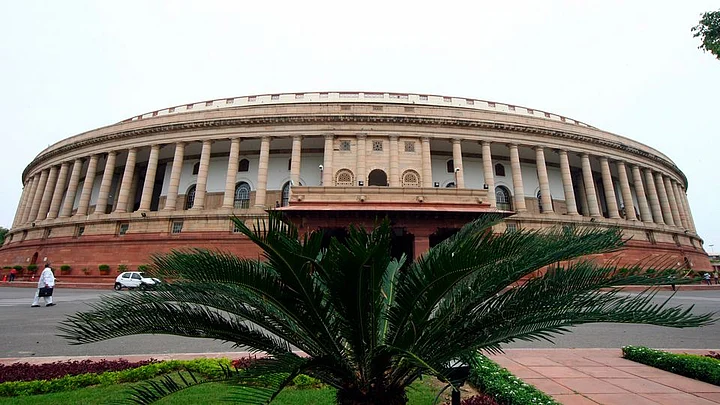- GST Bill: A landmark legislation set to become the government’s biggest tax reform since 1947.
- There’s good news for consumers; the services tax rate is likely to be set at below 18 percent.
- The Congress Party is keen that the GST be written in the Constitution.
- A Parliamentary committee shot down the Congress’ desire for a conflict resolution mechanism; a body with overriding powers over Parliament and state legislatures was undesirable.
- If the GST Bill is not passed this year, the government is confident of swinging its passage in the Rajya Sabha in April 2016.
GST, The Biggest Tax Reform Since 1947
The government appears to be in a sweet spot over the passage of the GST Bill – a “landmark” legislation set to become the government’s “biggest tax reform since 1947”.
Sweeter still for consumers, is a clear indication that the impending goods and services tax rate is likely to be set at below 18 percent, a significant concession from the 24 percent 27 percent level that has been under discussion, though higher than the 11 percent rate first recommended by the Kelkar Committee.
This disclosure pre-empts the submission of recommendations on a suitable revenue-neutral rate (RNR) agreeable to all stakeholders by a panel led by Chief Economic Advisor, Arvind Subramanian. The report, which was originally slated for a September release, has been delayed on account of the need to accommodate multi-stakeholder inputs.
Confirming this, a senior government source said, the deadlock with the Congress Party – which had mounted a fierce opposition to the GST Bill – has been whittled down to just four points. Since three of these are Constitutionally untenable, therefore non-negotiable, negotiations now centre on a single issue – the abolishing of the 1 percent additional tax for two years to support manufacturing states, which the government is willing to concede.
Congress Against Its Own Brainchild?
The Congress Party is keen that the GST rate be written in the Constitution. While former Prime Minister Manmohan Singh and President Pranab Mukherjee have accepted that tax rates are never mentioned in the Constitution, former Finance Minister P Chidambaram is understood to be still unwilling to back down.
In its present form, states have a two-third and the Centre, a one-third vote in the GST Council, which will decide on the issues based on a three-fourth majority. Proposed by the Congress Party when it was in power, this gives the Centre an effective veto. In a surprising U-turn, the Congress Party is now insisting on a one-fourth vote share for the Centre, essentially removing the veto.
The Congress, which had originally introduced the GST Bill in Parliament, had also provided for a dispute resolution mechanism – an independent body under the Constitution to resolve inter-state disputes. A standing Parliamentary committee shot this down on grounds that a body with overriding powers over Parliament and state legislatures was undesirable. The NDA Bill therefore, provides for dispute resolution under a GST Council. However, in a second U-turn, the Congress is learnt to be demanding that the original dispute resolution mechanism, which was shot down in the UPA term itself, be reinstated.
The Congress dissent note on the GST Bill, which was submitted in July by Madhusudan Mistry, Mani Shankar Aiyar and Bhalchander Mungekar to the Rajya Sabha had listed eight key points of friction. The fact that these eight points no longer seem to be on the table and have been reduced, first to four entirely new issues and finally, to just one single point, does constitute a significant breakthrough.
Regarding criticism over the definition of supply, service and GST in the Bill as being an invitation for widespread litigation, delays and economic wastage, the government has committed to suitably refining the definitions. However, if these are not incorporated in the Constitutional Amendment Bill, it will not resolve valid concerns raised by both the Congress and industry, that if definitions are left unclear, then what is the Parliament approving and adding to the Constitution?
Analysis
Political headwinds continue to suggest that the Congress Party will not allow Parliament to function when it reconvenes for the Winter Session on November 26, 2015. If all tactical manoeuvres fail and the GST Bill is not passed this year, the government is confident of swinging its passage in the Rajya Sabha in April 2016. “By April, if one takes both elected and nominated seats into account, the NDA will have over 23 additional seats, while the Congress will lose more than 23 seats,” the source said.
The GST Bill is designed to replace more than a dozen state levies to create, for the very first time, a single market among India’s 1.3 billion people. Once the Constitutional (122nd Amendment) Bill allowing the measure is passed by two-thirds majority in both houses of Parliament, it needs to be ratified by 50% of the state legislatures. Parliament will then pass the GST Act. The overall rate, which will vary for different goods, is to be set by a newly formed GST Council.
(Shalini Singh is a Delhi-based investigative journalist.)
